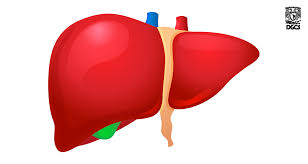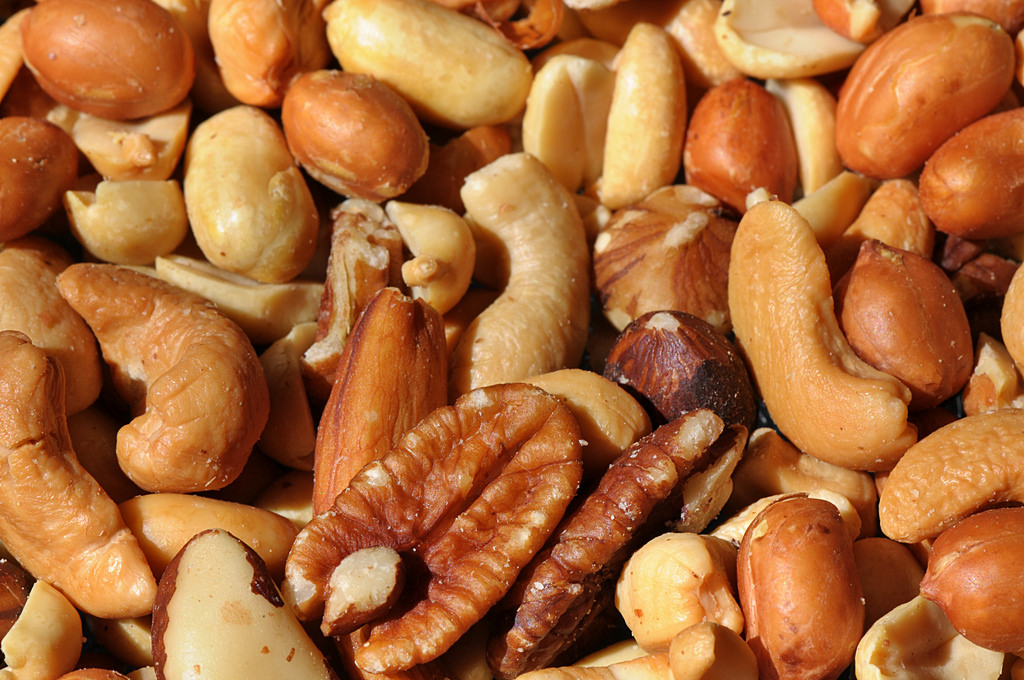
If you have been slugging through the day extremely exhausted or just struggling with gut and digestive issues, there is a chance your liver is taking up extra load. Of all the organs in your body, liver is one of the most important organs and is used in a wide range of functions, some of which include removing toxins from the blood, metabolizing alcohol, converting lactate into energy, activating enzymes, regulating fat, protein and carbohydrate in the blood, producing and excreting bile and storing essential vitamins, minerals and glycogen. Basically, without liver our body wouldn't be functional. Thanks to the constant mechanism, liver goes through lots of exertion, which is why it can get damaged easily if not taken proper care of.According to Bangalore based Nutritionist Dr. Anju Sood, "Liver cleanses itself; the process of which primarily starts at midnight, which is why it is recommended to take your dinner as early as possible so your liver gets some rest. Some of the foods act as stimulators of the detoxification process; include fibre-rich foods like spinach, carrots, et al in your diet." Consultant Nutritionist Dr. Rupali Datta agrees, "Liver is the only organ that cleanses itself. Just that whatever we eat and drink is detoxified by the liver; therefore it is important to feed good food to the body to not exert the liver."
It should go without saying that taking care of your liver is imperative; it is time you give attention to the much neglected yet an important organ of the body and improve its function. While liver tends to cleanse itself, one of the ways to improve your liver's health and cleanse it is through proper diet. The foods that you choose to eat define how your liver will function.
Here are foods that may somewhat help cleanse your liver naturally:
1. Garlic
Garlic contains certain sulphur compounds that are essential for supporting the liver and activating liver enzymes, which are responsible for flushing out toxins and waste from the body. It also consists of selenium, which is an important mineral that assists in detoxification.
2. Green leafy vegetables
The greener, the better! Your liver loves bitter and greener leafy vegetables like spinach, mustard greens, et al that contain various cleansing compounds. In fact, they help to stimulate bile flow.
3. Fibre-rich foods
Adding fibre-rich foods like apple, carrots, cauliflower, beetroots, green leafy vegetables, et al hastens the elimination of toxins in the body, while providing support to the digestive tract.
4. Green tea
Green tea has plant-based antioxidants known as catechins, the compounds that are known to assist liver function and eliminate liver fat accumulation. So sip 2-3 cups of green tea every day to ensure a healthy liver.
5. Turmeric
Turmeric is known to be one of the most powerful spices that helps maintain a healthy liver by protecting against liver damage and regenerate healthy liver cells. It also helps boost production of bile and improves overall functioning of the gall-bladder, another blood-purifying organ.
6. Citrus fruits
Citrus fruits like lemon, grapefruit, oranges, et al are rich in vitamin C content and antioxidants that are known to be powerful liver-cleansers. They also boost the production of liver detoxifying enzymes.
7. Walnuts
Walnuts are a rich source of amino acid known as arginine that support liver cleansing. They are also high in glutathione and omega-3 fatty acids that also support liver detoxification. Ensure that you munch on this important liver-friendly nut.
Go on and help your liver function better with these foods!
Nuts are great. Not only do they make for a crunchy and filling snack to chomp on between meals, they are also known to boost weight loss, brain power and heart health. These tiny wonders are rich sources of protein, fiber and several antioxidants and anti-inflammatory compounds. Most nuts contain Vitamin E, B2, folate and essential minerals like magnesium, potassium, phosphorus, copper and selenium. Some people may refrain from chomping on these healthy nuts thinking that they are high on calories but Consultant Nutritionist Dr. Rupali Datta clears the air. "Although nuts are fat dense, but have a very healthy lipid profile which is protective to our heart and health. Most fats in nuts are healthy monounsaturated fat and omega-3 fats," she says.
According to a study conducted by Harvard's T.H. Chan, School of Public Health, people who regularly eat nuts are less likely to have heart attacks or die from heart disease than those who rarely eat them. Here are five nuts that you must eat every day for a strong and healthy heart.
1. Walnuts: As a kid, your mother may have convinced you to eat these woody nuts daily for better memory and brain power. Turns out that walnut may be good for your heart too. It is probably the best nut for your heart health. The unsaturated fat found in walnuts - omega-3 fatty acids may help in preventing the development of erratic heart rhythms. Omega-3 fatty acids may also prevent blood clots. Moreover, walnut kernels are known to contain double the amount of antioxidant content than other nuts.
2. Pistachios: A study carried out by Diabetes Foundation of India (DFI) and the National Diabetes, Obesity and Cholesterol Foundation shows that pistachios have beneficial effects on glycemic and lipid parameters. Pistachios have a low glycemic index, are naturally cholesterol free, and are good sources of protein, fibre and antioxidants. These qualities make them great for preventing the risk of obesity and heart disease.
3. Almonds: Almond is one healthy nutty delight. Regular consumption of almonds has been linked to lowering LDL (bad) cholesterol levels in innumerable studies. They are rich in monounsaturated fats, fibre, phytosterols, plant protein, tocopherol, arginine, magnesium, copper, manganese, calcium, and potassium makes them heart protective. Arginine, found in almonds, is a type of an amino acid that is required to make a molecule called nitric oxide which is known to relax constricted blood vessels and ease the flow of blood.
4. Peanuts: Peanuts contain a powerful antioxidant called resveratrol which is found in its skin and is known for its heart protective activity. Switching to peanut butter could be a healthier and protein-rich alternative to processed butter that is full of sodium. Through them in salads and stuff them with the filling in wraps or sandwiches.
5. Cashew Nuts: Cashew nuts are rich in Vitamin E that may help in inhibiting the formation of plaque in your arteries allowing the blood to flow through them smoothly. Development of plaque in the arteries is one of the most common causes of coronary heart disease and heart attack. Sprinkle some cashews on your breakfast cereal or even on stir-fries for lunch.
6. Hazelnuts: These buttery nuts are full of protein and fiber. They are rich in potassium, calcium and magnesium - minerals that help in regulating healthy blood pressure. They are also rich in heart healthy oleic acid which is known to lower bad cholesterol levels and raise good cholesterol levels.
Given that a lot of scientific studies have validated the fact nuts are good for you heart and overall health, the US Food and Drug Association recommends the consumption of an ounce or 30 grams of mixed nuts daily.

Admittedly, pomegranates make for some of the toughest fruits to cut open and eat; however, thanks to the many health benefits they have to offer, they are considered superfoods. They come packed with vitamins B, C and K and antioxidants that promote health. According to the book Healing Foods by DK Publishing, the pomegranate seeds and their juice are most valued for their antiviral and anti-bacterial properties. Moreover, it is a low-calorie fruit, making pomegranate a snack that helps lose weight without packing many calories. Let's look at how many calories are in a pomegranate and a few recipes to ensure you include this wonder fruit in your diet.
Calories in Pomegranate
According to the United States Department of Agriculture (USDA), about 100 grams of pomegranate seeds contain 83 calories; the majority of which come from carbohydrates. A medium pomegranate is said to contain about 10 grams of fibre and about 39 grams of sugar. Moreover, it is said to provide 48 percent of your recommended daily allowance of vitamin C.
Health Benefits of Pomegranate
-According to the book Healing Foods, drinking a glass of the juice every day may lower levels of prostate specific antigen in men.
-Antioxidant flavonols in pomegranate may help reduce the activity of proteins that are shown to cause inflammatory conditions like arthritis.
-The fruit has antiviral properties that help prevent infections and maintain overall health, especially oral health.
-The antioxidants present in pomegranate help prevent heart conditions. Its polyphenol compounds help keep the blood pressure levels in check.
-Pomegranate juice has shown to increase blood platelet count, thereby preventing a condition like anaemia. In fact, it is known as the most trusted blood thinner.
-Pomegranate contains vitamin C, which is known to fight against signs of ageing in the long run. It is super hydrating and the presence of micronutrients and phytochemicals help keep the skin glowing.
-Pomegranate is known to be a natural aphrodisiac.
-Pomegranate seeds boost digestive health; thanks to the presence of B-complex vitamins. They also contain fibre, which is essential for digestion.
If you are planning to have a baby then try including seafood to your diet as couples who eat seafood tend to be more sexually active and get pregnant faster than other couples trying to conceive, a new study suggests.
The study, published in the Journal of Clinical Endocrinology and Metabolism, found that, among the participants, 92 per cent of couples who ate seafood more than twice a week were pregnant at the end of one year, compared to 79 per cent among couples consuming less seafood.
“Our study suggests seafood can have many reproductive benefits, including shorter time to pregnancy and more frequent sexual activity,” said co-author Audrey Gaskins from the Harvard T.H. Chan School of Public Health in Boston.
“Our study found that couples who consume more than two servings of seafood per week while trying to get pregnant, had a significantly higher frequency of sexual intercourse and shorter time to pregnancy,” Gaskins added.
For the study, the researchers examined 500 couples to determine the relationship between seafood intake and time to pregnancy.
The participants recorded their seafood intake and sexual activity in daily journals.
The association between seafood and faster time to pregnancy was not completely explained by more frequent sexual activity, suggesting other biological factors were at play. These could include effects on semen quality, ovulation or embryo quality, the researcher said.
Seafood is an important source of protein and other nutrients for women who are or may become pregnant, but concerns about mercury have led some women to avoid fish when trying to conceive.
Earlier, a study, published in journal Molecular Autism, found no evidence to support claims that mercury in fish is linked to the development of autism or autistic traits in newborns.
“Our results stress the importance of not only female but also male diet on time to pregnancy and suggest that both partners should be incorporating more seafood into their diets for the maximum fertility benefit,” Gaskins noted.
Consuming Mediterranean diet rich in antioxidants could reduce the adverse effects of air pollution on health.
A diet which includes antioxidants present in fruits, vegetables, whole grains, legumes, olive oils, fish and poultry over red meat and processed foods, can weaken the adverse effects of exposure to high levels of air pollution, says researchers.
The study showed that people who least adhered to these antioxidant-rich foods had 17 per cent higher risk of cardiovascular disease related deaths for every 10 micrograms per cubic meter increase in long-term average PM2.5 exposure, compared to 5 per cent in those who consumed such diet.
“Given the benefits we found of a diet high in antioxidants, our results are consistent with the hypothesis that particle air pollution caused by fossil fuel combustion adversely affects health by inducing oxidative stress and inflammation,” said George Thurston from Department of Environmental Medicine at the New York University.
The study, presented at the American Thoracic Society 2018 International Conference in San Diego, included data from 548,699 participants for over a period of 17 years. They were linked to estimates of long-term exposure to fine particulate matter (PM2.5), nitrogen dioxide (NO2) and ozone (O3) based on census tract information.
Deaths from all causes increased by 5 per cent for every 10 parts per billion (ppb) increase in long-term average NO2 exposure in those with least consumption of the diet as compared to 2 per cent among the people with higher consumption.
“However the diet did not appear to protect against the harmful effects of long-term exposure to O3…the ozone effect was not significantly blunted by a Mediterranean diet, so ozone apparently affects cardiac health through a different mechanism”, said Thurston.










